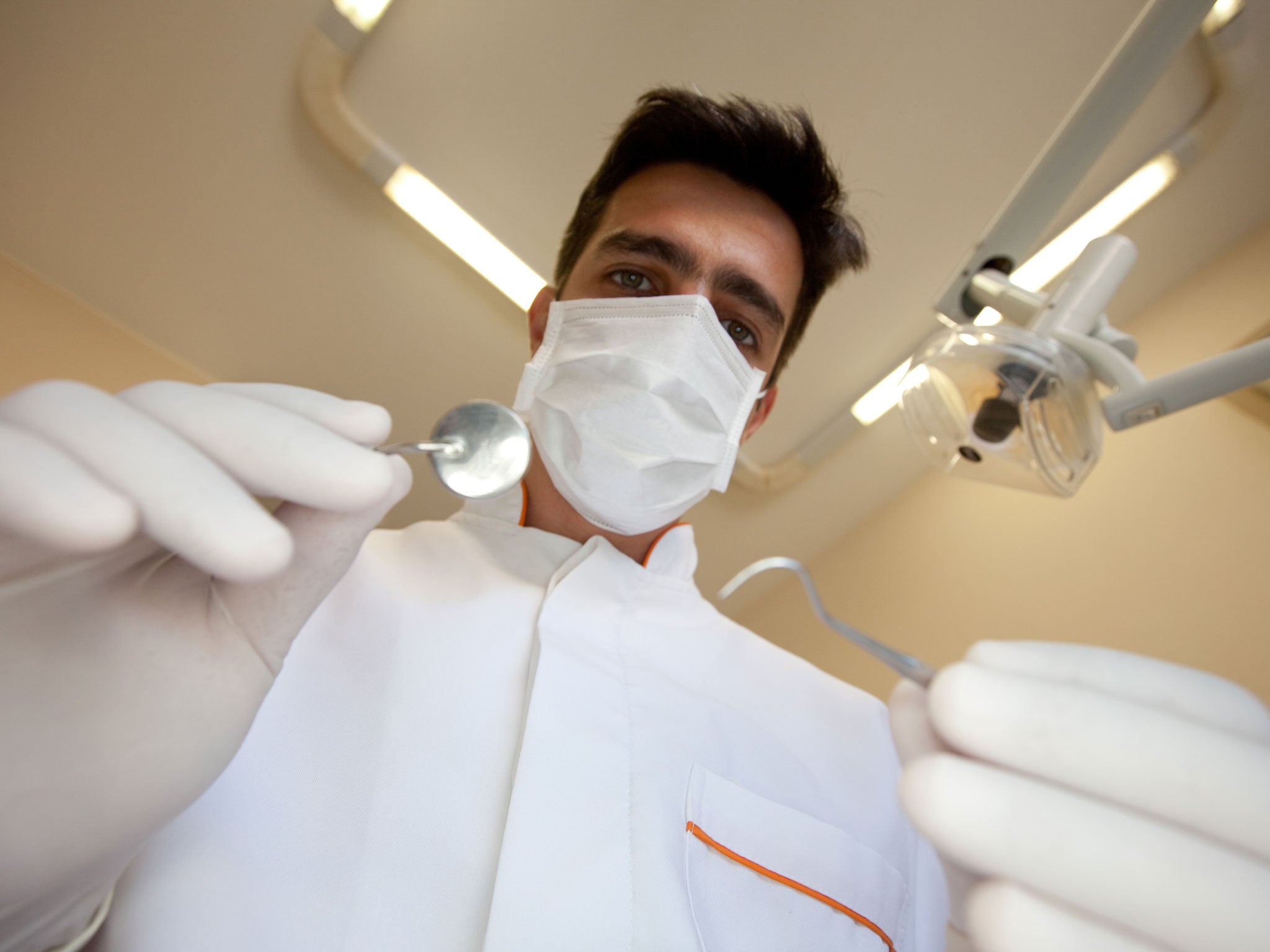Drill-free fillings are the future as dentists develop 'self-repairing' tooth decay treatment
Electrical currents can be used to repair lost minerals in teeth

Trips to the dentist could soon be much less painful as scientists perfect a way to repair tooth decay without the need for dreaded drilling and fillings.
The technique, developed at King’s College London, effectively reverses decay by using electrical currents to boost the tooth’s natural repair process.
Minerals that are lost during decay and eventually cause painful cavities are replaced, removing the need for drilling and fillings of resin or amalgam.
The technique, known as Electrically Accelerated and Enhanced Remineralisation (EAER), could be available within three years.
Professor Nigel Pitts, from the Dental Institute at King’s College London, said: “The way we treat teeth today is not ideal – when we repair a tooth by putting in a filling, that tooth enters a cycle of drilling and re-filling as, ultimately, each ‘repair’ fails.
“Not only is our device kinder to the patient and better for their teeth, but it’s expected to be at least as cost-effective as current dental treatments.”
The method can also be used to whiten teeth, he said.
Around 2.3 billion people are believed to suffer from tooth decay every year, making it one of the most common preventable diseases in the world.
It starts as a microscopic defect where minerals leak out of the tooth and the enamel is eventually undermined.
The method first prepares the damaged part of the enamel outer layer of the tooth, then uses a tiny electric current to draw calcium and phosphate in.
Electric currents are already used by dentists to check the pulp or nerve of a tooth.
The treatment will be launched by Reminova – a company linked to King’s College London’s Dental institute – which is seeking private investment to develop the remineralisation device.
Join our commenting forum
Join thought-provoking conversations, follow other Independent readers and see their replies
Comments